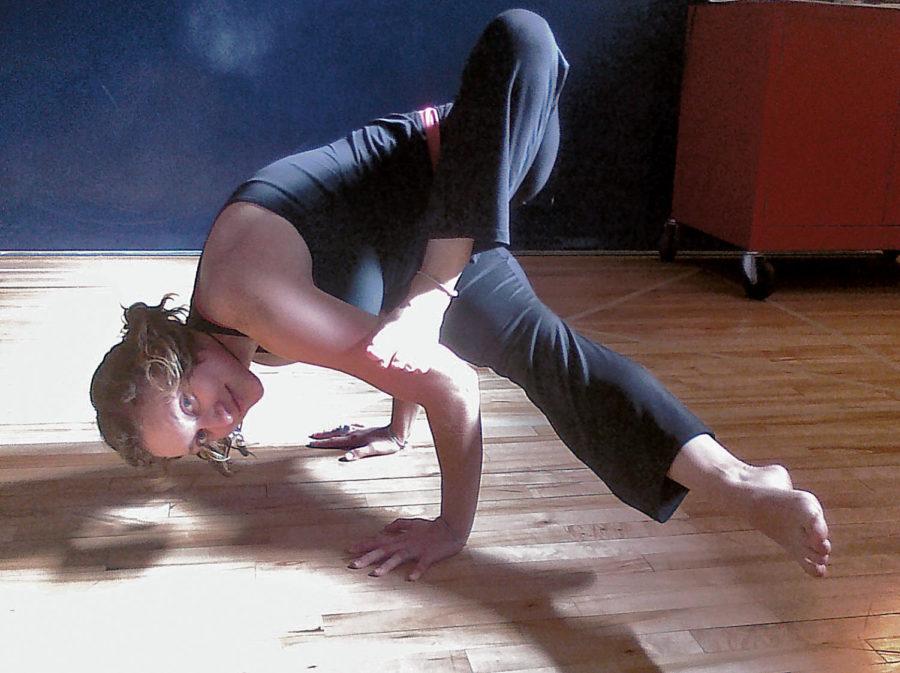Stress relief found in yoga
Claire Kruesel, a graduate student in biochemistry and yoga instructor, strikes a yoga pose on Wednesday, Oct. 20, 2011, in Beyer Hall. Yoga classes are taught every day of the week at various times in the third floor studio.
October 20, 2010
Between studying for exams, finishing projects and preparing for Homecoming Week, students may feel a bit spread-thin. However, yoga can help ease the stress.
Amy Welch, assistant professor of kinesiology at Iowa State, said exercise has positive effects on human health — and it’s been documented.
“Perceived stress reduction has been documented after one yoga session, and a number of experiments have shown it to have positive effects on chronic stress — both psychological and physiological indicators — anxiety, post-traumatic stress disorder and mild clinical depression,” Welch said.
The controlled breathing aspect of yoga plays a key role in stress management.
“[Yoga breathing] has been shown to engage the parasympathetic nervous system, which overrides the sympathetic nervous system — i.e., the one responsible for the ‘stress response.’ There is also some indication that this kind of breathing, when practiced frequently, optimizes heart rate variability, which has been linked to better cardiovascular health and lower levels of depression and anxiety,” Welch said.
Claire Kruesel, graduate in biochemistry, biophysics and molecular biology, has been a yoga instructor for three years. She said even on the busiest of days, yoga helps her calm down and reconnect with herself.
“Yoga helps me tune into the internal processes of my body — things that tend to get drowned out during everyday life — and also provides a ritual that can really be calming, like if you know you need to relax, but you can’t think of the process,” Kruesel said.
Both Welch and Kruesel personally choose yoga for stress release.
“I first started practicing yoga about three years ago as a way to manage my stress levels. One of the things that I think is so great about yoga from a psychological standpoint: It forces you to just slow down and ‘be’ for a while,” Welch said.
“I always feel more focused after yoga. I feel worn-out and tired and sore in a really good way,” Kruesel said.







